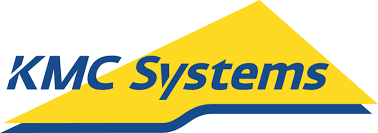MERRIMACK, N.H.– Elbit Systems of America (“Elbit Systems of America”) and its medical instruments division KMC Systems (“KMC”) today announced a new partnership with start-up company Aza Technology Inc. to provide a rapid blood ammonia detector.
KMC and Elbit Systems of America are dedicated to supporting local science and technology start-up companies like Aza Technology as they work to bring their research to market. With manufacturing and engineering headquartered in Merrimack, NH, and supported through the Cambridge Innovation Center, KMC offers highly advanced clinical and operational solutions to help solve customers’ most complex challenges.
“Our partnership with Aza is another way KMC and Elbit Systems of America are helping to change the landscape of healthcare and drive disruptive technologies in the life sciences space,” said Derek Kane, Vice President and General Manager of KMC. “KMC is focused on patient forward technology and this exciting partnership will help to bring new technology to market that directly impacts patient care and overall patient quality of life.”
As the healthcare landscape continues to push towards rapid testing equipment, Aza Technology has developed a Rapid Ammonia Monitoring Device (AMD) intended for the quantitative determination of ammonia in whole blood, which enables the early detection of hyperammonemia that is critical to prevent irreversible neurological damage, coma, and death. Hyperammonemia can strike at any age and timely diagnosis is limited by the current process and testing technology. The AMD has been granted Breakthrough Device designation from the Food and Drug Administration (FDA) for point-of-care measurement of ammonia for use in pediatric patients, including neonates as an aid in the diagnosis of inborn errors of metabolism. The AMD can be lifesaving as it aims to dramatically decrease blood ammonia processing times from hours to minutes.
“Between hospital and/or clinic visits, parents and caregivers are challenged to know ammonia levels and when their level would require immediate attention or action,” said Kathy Stagni, Executive Director of the Organic Acidemia Association. “The availability of a rapid point-of-care ammonia device, such as the AMD, with the capability of monitoring blood ammonia, will be a game-changer for the patient and the caregivers.”
The AMD was developed in collaboration with Stanford University and Stanford Hospital. KMC will support Aza Technology in seeking FDA approval for the AMD for use in both adult and pediatric patients, as well as manufacturing of the device and its consumables.
“Development of an accurate point-of-care ammonia meter has the potential to improve our care of patients with urea cycle disorders and organic acidemias,” said Dr. Jerry Vockley, MD, PhD, Chief of Medical Genetics & Director for Rare Disease Therapy at Children’s Hospital of Pittsburgh.
“We are thrilled to be in a partnership with KMC and Elbit Systems of America as we continue to develop our lifesaving, medical diagnostic device and seek FDA approval for the AMD,” said Peter Karkantis, CEO & Co-Founder, Aza Technology Inc. “The medical device regulatory and manufacturing expertise that KMC offers is the key factor of why we are excited to be partners in this breakthrough innovation.”


